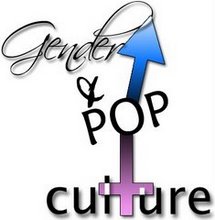Thank you, Maura Egan. What with the NY Times reportage (if it can be called that) regarding Heroes and its fandom, I worried that this article might rely on the same old stereotypes of fans -- stereotypes that, in their own way, hurt women by excluding them. Part of what "straights" find so easy to pick on about fandom is the old-fashioned, mistaken impression that it's a predominantly male space. (Many female fans would disagree, I'm sure.) This isn't to say that the dated stereotypes about fandom doesn't hurt men, either -- the "40-year-old male fan living in his mom's basement" stereotype doesn't do men any favours. In reality it's unfair to all genders: the "Android's Dungeon" archetype within pop culture suggests that fans can be only male, only white, and only heterosexual. And those whom it doesn't exclude, it insults: male fans are somehow lesser, characterised as childish, weak, or unable to carry on adult relationships.
To which I responded:
You make a very important point in your comments regarding the fans of comics, manga, etc. The members of these fans have changed and most of the stereotypes used to refer to these members are outdated and do very little in the way of describing them accurately. But I feel, and you might agree, that though this doesn’t do any one any favors, it’s hard not to expect it. After all, most of the same people using these false generalizations are the same people who don’t understand how much the world of comics, manga, etc has changed in the last few years. If they cannot understand or are unaware of the changes within this form of entertainment, then it’s expected that they also will have incorrect perceptions of those who are entertained by it.
I highly recommend reading the rest of the post, and other posts.
http://fandrogyny.blogspot.com/2007/02/geek-chic-for-women-two-news-items.html


1 comment:
Interesting post you found and your response is right on target- I like your addition of links to the comment you left too.
Post a Comment